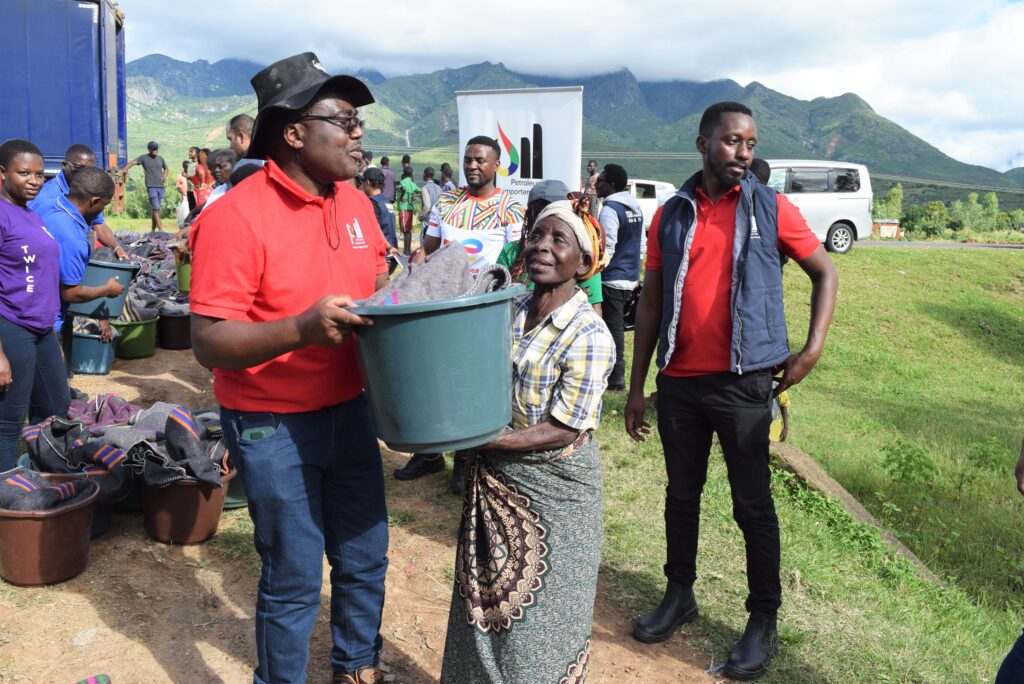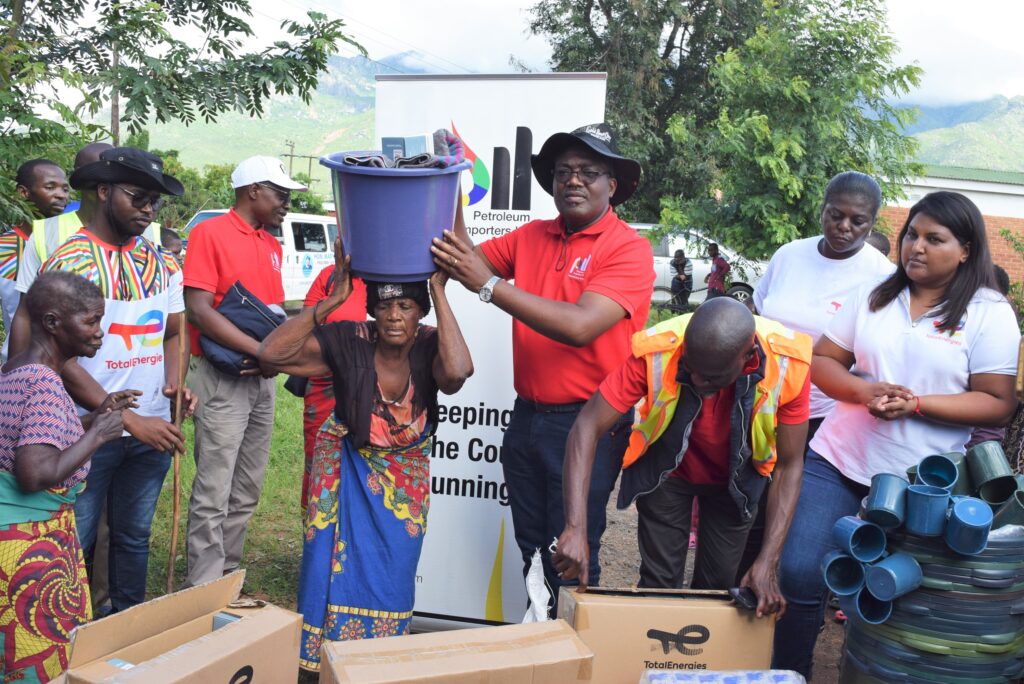
Petroleum Importers Limited (PIL) has donated goods worth K20 million to victims of Cyclone Freddy at three camps in Phalombe.
Speaking after making the donation at Naminjiwa Community Technical College, Naminjiwa CCAP Primary School, and Ndungunya Primary School camps in the area of Traditional Authority (T/A) Kaduya, PIL General Manager Martin Msimuko said they took heed of the call by Government through a declaration of the State of National Disaster in some districts of the Southern Region by President Lazarus Chakwera last week.
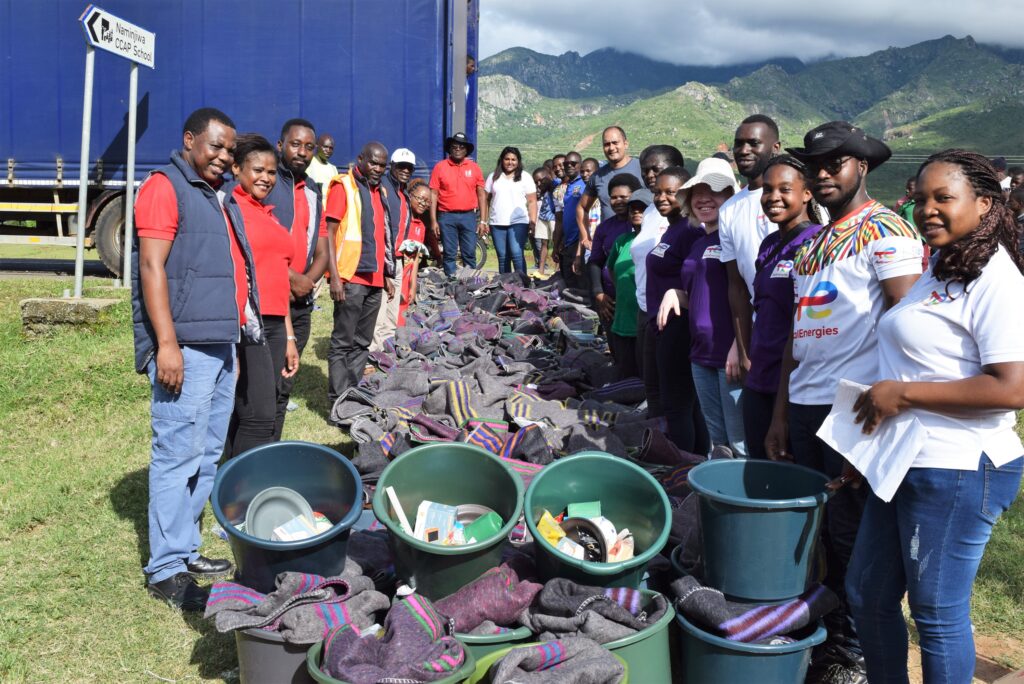
“We decided as a company to start with Phalombe because not many might have reached this place at this point in time. Our donation is targeted to reach 400 families which is about 1200 people. What we have done is that we have put in each package basic needs in terms of food so that they can find some food as they are restarting their lives. To us, this is just a start as we will be extending the donation to other areas,” said Msimuko.
One of the survivors at Naminjiwa Technical College camp Vaileti Kunashe commended PIL for the support, while calling for more donations saying the situation is dire.
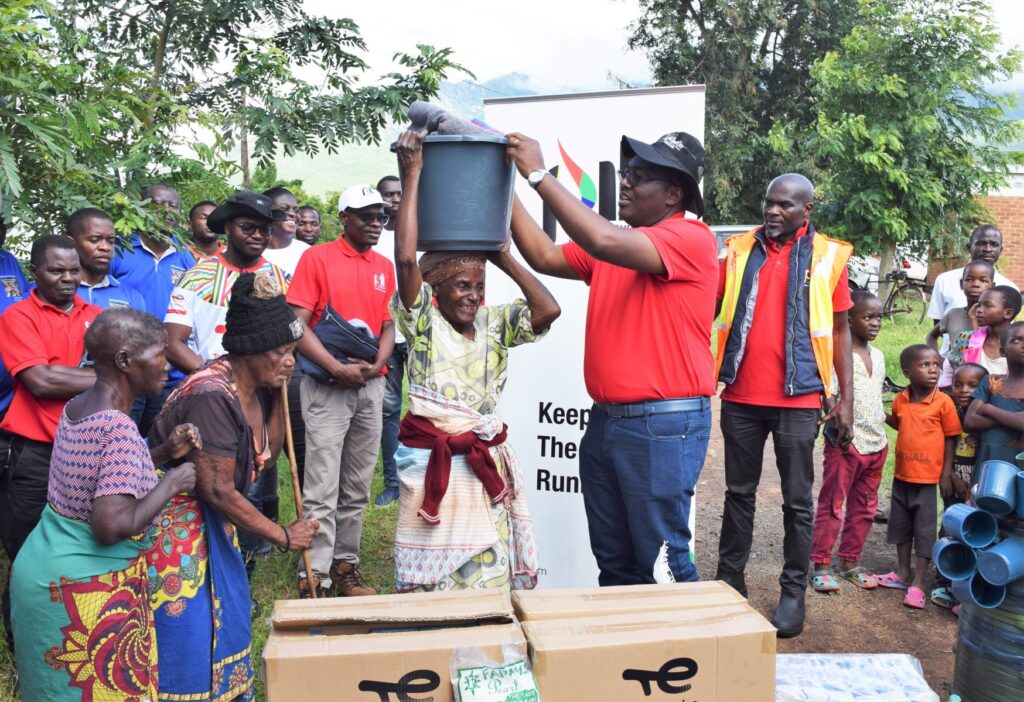
“I have four children and two twin grandchildren less than a year old who were left by my late daughter, yet I have lost my house. Life is tough for me and others in similar situations here at the camp. We barely have food, but PIL has given us a hand. We just plead for more, especially health authorities to consider us with medication for various ailments as we cannot travel to the hospital leaving the kids behind with nobody to look after,” she said.
Some of the donated items are a package of basins, rice, sugar, salt, soya pieces, blankets, cooking oil, maize flour and milk.
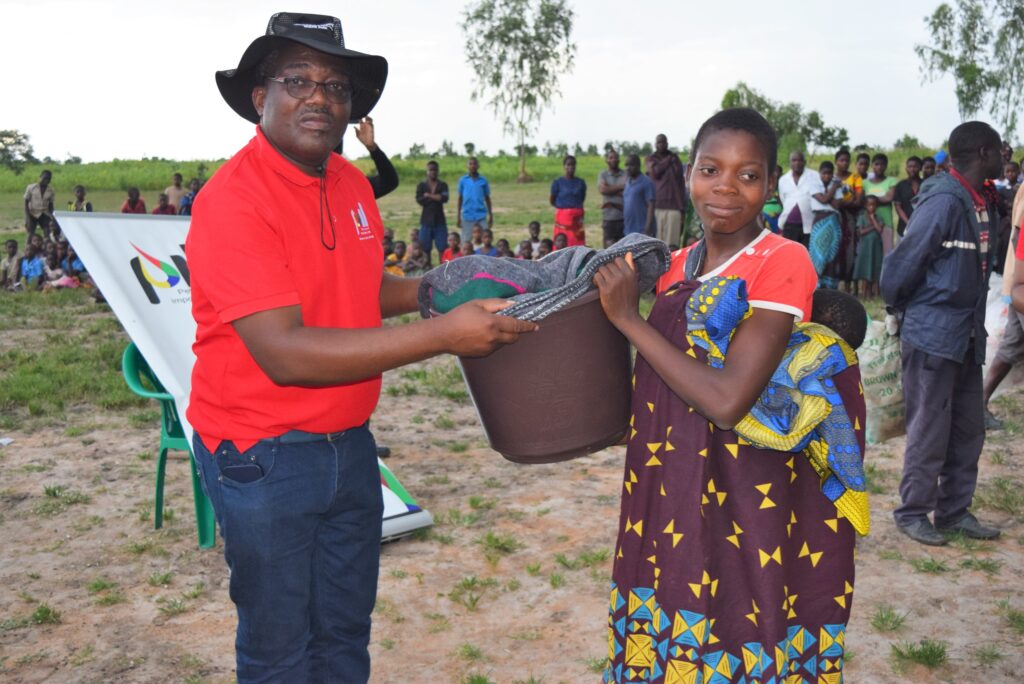
During the functions, one of the four oil marketing companies that make up PIL, Total Energies donated 400 solar lamps to the three camps.
Apart from Total Energies, some of the companies that make up PIL are Vivo Energy, Puma, and Petroda.
The Cyclone Freddy disaster has claimed more than 400 lives and displaced thousands of people in the southern region, according to the Department of Disaster and Management Affairs (DoDMA).
